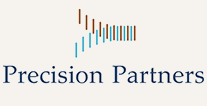We’re amid a moment of dramatic change across American life as people in all industries are quitting their jobs at record numbers. As nationwide labor shortages continue to impact every aspect of everyday life, nonprofits are not exempt.
What may be even more concerning is many nonprofits can no longer compete with wages seen in the private sector. In a recent New York Times article, Carrie Miranda, executive director of Looking Upwards, a nonprofit in Middletown, R.I. said, “we’ve lost our ability to be competitive. We used to compete with hospitals and other health care entities, and now we’re competing with the convenience stores, the fast-food places, the coffee shops … I’ve heard more and more people say, ‘I’d love to stay in this job, I’m passionate about the work, but I need to feed my family, I have to pay my rent.’”
This period has been deemed the “Great Resignation” and arose from what many think was a result of the pandemic and social and political events. In fact, four million American workers quit their jobs in April 2021, 3.6 million joined them in May, and 3.9 million followed them out the door in June.
But the mass-exodus may be more in part to a workforce that feels burned out and disenfranchised, only exacerbated by the pandemic and social and political events. Modern employees are reassessing their values, more aggressively protecting their time, and opening themselves to possibilities that give them a greater sense of purpose. They are seeking a new normal that goes beyond remote work.
The turnover trend has a lasting impact, especially in advancement. In an industry built around relationships—particularly among frontline fundraisers—organizations are finding it increasingly difficult to create a sense of continuity with donors.
The Great Resignation offers one of the greatest advancement recruiting opportunities in recent history. Nonprofit leaders are afforded the chance to shift their recruiting and retention efforts toward motivated, purpose-driven candidates, in search of careers with a more meaningful path. Here’s where to start.
Mentoring
Mentorship is important in any industry, and the lack of mentorship can hinder a career path regardless of job title. Focus on providing your advancement team the mentorship and coaching they are looking for by helping them develop their skills and build their experience.
For more experienced advancement team members, ask the question, “How I can prepare you to take over for me?” They might not want to do your job, but this helps illuminate and frame future discussions and growth plans.
Transparency
It is incredibly important to set expectations from the beginning. If you’re interviewing an advancement candidate that wants to work remotely, but your organization operates on a hybrid model, it’s vital to make this clear.
Even beyond the interview, transparency should empower all conversations with your advancement team members. Workplace transparency is a philosophy of sharing information freely to benefit the organization and its people. For example, executives share company information with the whole team, or individual teammates sharing feedback with each other.
Transparency has become particularly important, especially as the workforce continues to mitigate several external challenges. Transparency must also coincide with understanding. Today’s modern workforce requires a level understanding that didn’t exist in the traditional workplace.
Connect
It’s important to ensure you set your advancement staff up for success by scheduling regular check-ins and managing expectations. Regularly connecting with employees helps you deter future challenges or address issues before they become a problematic.
For example, if your employee is frustrated because a lack of resources, you can brainstorm solutions to ease their frustrations. This may include getting them adequate resources or connecting them with team members for support. Either way, this level of communication helps employees feel supported and decreases the likeliness of resignation.
Professional Development
Most advancement team members want to grow and challenge themselves. In many cases, employees desire to find opportunities that expand their skillset. Growth-focused opportunities equip staff with the tools they need to progress in their career.
Traditional work culture thought of promotions in terms of three-year cycles: The first year you learn the job, the second year you do the job, and the third year you innovate. But it can be helpful to make the steps necessary to advance as clear as possible so employees understand what’s expected of them. Additionally, you may be able to promote an employee earlier than expected, which benefits both parties.
When job openings do arise, evaluate the position’s job description before you rehire. Ask questions that help your organization assess the value of the role.
- Does this position need to be filled?
- Does this position need to be rethought?
- Is there anything in the job’s description that someone else might want to try or add to their expertise?
- Do the job tasks fit better somewhere else?
Before you fill the role externally, look internally to see if your existing team might be interested. This helps your staff feel engaged in a meaningful way.
Shifting the way your organization recruits and retains your advancement workforce is important for the current moment. But these tactics help to build a healthier, happier, and more productive advancement team, which will be important long after the Great Resignation expires.

